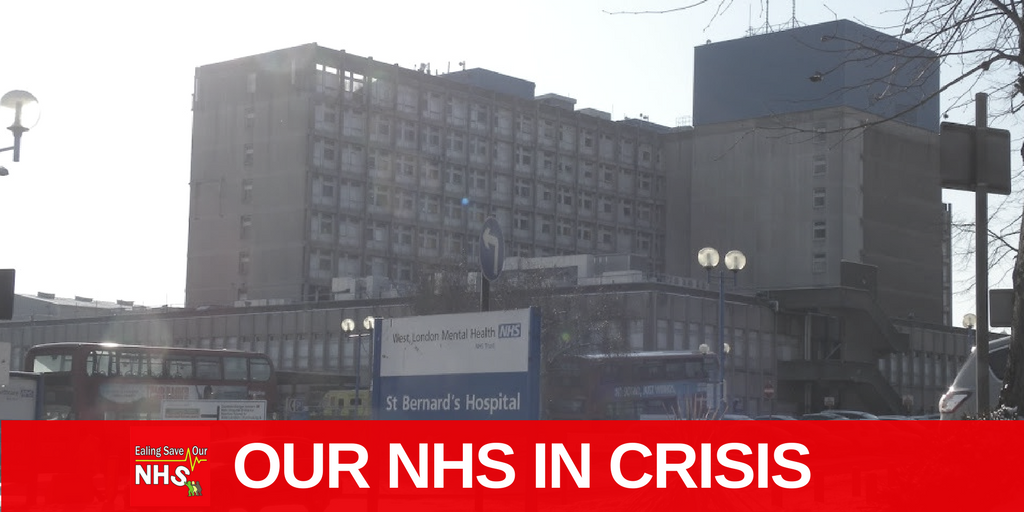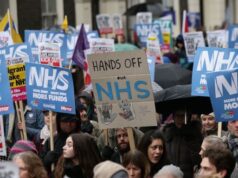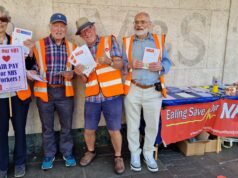NHS Integrated Care Providers (ICPs) – Do They Exist? When Will They Exist?
The public consultation on the ICP contract ended on 26 October 2018. By now ICP contracts should have been signed in Dudley and in Greater Manchester. However I can find no news announcements or web site updates announcing such events. NHS England’s (NHSE’s) web site states that ‘….the ICP contract…in its updated form…available…from Spring 2019’. So – can we expect this within the next few weeks? Probably not as the NHS consistently misses its self-imposed deadlines.
For the confused, NHSE seems to use the terms ICP and ICS as and when it chooses. The two acronyms apparently are interchangeable.
Of course what happens every few years in the NHS these days is that its bosses throw all the balls up in the air. This latest ball throwing happened in January 2019, with publication of the NHS Long Term Plan (LTP). The ten year LTP replaces the October 2014 NHS Five Year View. The LTP states that ‘ICSs are central to the delivery of the LTP’; ‘By April 2021 ICSs will cover the whole country’; ‘A single CCG for each ICS area’. In February 2019 NHSE set out its desire to bring in new Government legislation to make it easy for new NHS Trusts to be set up to become ICS/ICPs. On the ground in NHS North West London (NWL), a new care commissioner will have to be created – the NWL Clinical Commissioning Group – to which the new contracted NWL ICS/ICP will be accountable.
The LTP also points the way towards a transformation in Primary Care. A separate NHSE/BMA January 2019 paper outlines these imminent changes. I review this paper later in this newsletter.
Another aspect of the LTP with regard to CCGs is the appointment of the Accountable Officer. The LTP states that NHSE will ‘designate the Council’s Chief Executive or Director of Adult Services as the CCG Accountable Officer’. This would eliminate the current NHS NWL Collaboration of CCGs Accountable Officer Mark Easton as a candidate in the new NWL CCG and open up the choice of eight Local Authority Chief Executives and eight Local Authority Adult Services Directors as candidates.
The LTP goes into ‘blue sky’ mode by predicting ‘….future proposals for social care and health integration in the forthcoming (Government) Green Paper on adult social care’. This paper was first promised for publication in summer, then ’before the end of 2018’ and now goodness knows when. However as social care is such a mess one might question the usefulness of the five Governmental Social Care Green Papers published since 1999.
NHS NWL’s 2012 ‘Shaping a Healthier Future’ (SaHF) Cancelled and NHS NWL’s 2016 Sustainability & Transformation Plan (STP) to be Abandoned – One Wonders What the Life Expectancy Will Be of the Yet To be Born NHS NWL ‘Long Term Plan’ (LTP)
At the latest meeting of the NHS North West London (NWL) Collaboration of the Eight Clinical Commissioning Groups (CCGs) on 2 May 2019 there was much line drawing under the SaHF and the STP. The new kid on the block in terms of a plan will be NHS NWL’s regional version of the NHS England (NHSE) LTP published in January 2019. However NHS NWL has been slow to even respond to the new national ten year LTP never mind engage with local stakeholders in formulating an NWL LTP. Healthwatch – allegedly the patients’ consumer watchdog – is being employed to collect feedback on the LTP. See www.healthwatch.co.uk/what-would-you-do.
Ground-breaking commitments were made at this meeting by NHS NWL bosses to active engagement with Ealing Save Our NHS (ESON) and Save Our Hospitals – Hammersmith (SOH) in formulating this regional LTP. However, the well publicised (but possibly not well advanced), plan by NHS NWL to select a 4,000 person standing panel to review ongoing care transformations is as yet not in place.
I’m very supportive of the KONP critique of the national LTP (see below) and I’m concerned that the NWL regional version will just ’parrot’ the national version. However of much more tangible significance was the announcement that in 2019/20 the NWL financial plan involves cutting its £3.6 billion annual costs by £100 million. If achieved, this will mean lots of ‘demand management’ initiatives to ration care.
Yet more turbulence is expected in NHS NWL this year as it wrestles with eliminating eight local CCGs and creating a new regional CCG. Sadly some quite well paid executives will fall off their lucrative CCG gravy trains. However only confusion appears to be the target of the body which might deliver the new CCG’s purchased services. The emerging regional Integrated Care Partnership/Integrated Care System (ICP/ICS) will attempt to bring together a host of care service suppliers – NHS Trusts, Local Authorities, private care companies, charities, voluntary groups. Attempts to achieve this ‘seamless’ co-operation have been hampered in the past by Local Authority opposition of SaHF and the STP, especially in Ealing and Hammersmith & Fulham.
As for apportioning blame for the £235 million spent on the now cancelled 2012 SaHF and the no doubt tens of £millions spent on the about to be abandoned 2016 STP, Accountable Officer Mark Easton said at the meeting that ’no-one was to blame’. I didn’t know whether to laugh or cry at that point in the meeting.
To discover that money is being spent on refurbishing NHS NWL headquarters offices in Marylebone Road, London seems massively inappropriate. This was the location of SaHF staff and not only that, there is a repair bill backlog of £729 million for just four of the NHS NWL Major Hospitals.
The Transformation of GP Services – The Story So Far
It’s now over six years since I began researching and reporting on changes to NHS healthcare services nationally, regionally and locally. During this period the term ‘transformation’ has gained popularity with NHS bosses to label these changes. How has transformation impacted GP services since 2013?
Waiting Times
No-one will dispute that waiting times to see a GP have got considerably longer since 2013. Lots of reasons have been suggested for this. These include an increase in demand from an ageing population having multiple medical conditions/ illnesses. On the supply side GP numbers have declined since 2015, and we have only marginally more GPs this year than last year.
Overworked GPs
A recent survey by ‘Pulse’ magazine/web site revealed that GPs are seeing up to 60 patients a day – double the number they consider safe.
A Post Code Lottery for Performance?
One way of profiling GP surgery performance is to research the number of annual Non-Elective (NEL) admissions to hospital per 1,000 Weighted Patients in each surgery, town or across the region. These NEL admissions are mostly Emergency admissions. Local researcher Tony Brewer has revealed that using the NHS’s own data there are more than double the number in Ealing (80.8) compared with Westminster (32.81). There are even wide variations across Ealing itself – with patients at surgeries in Acton (68.80) registering much lower NELs than across the rest of Ealing (from 73.15 –88.95)
GP Referrals to Consultants
In 2013 if your GP in Ealing referred you to a consultant, an appointment was made and you’d go to see the consultant. These days life is just not that simple. Every GP referral is intercepted by the Referral Facilitation Service (RFS). The RFS, run by a private contractor, will employ a GP to ‘second guess’ your GP. This intercepting GP could cancel the referral, change the referral or allow the referral. One can only presume that the RFS is all about reducing the number of GP referrals and cutting costs. In management consultancy jargon this approach to rationing a service supply is referred to as ‘demand management’.
Use of Technology
For those with mobile phones the texting service by GP surgeries has clearly helped with reminding patients about their appointments and expediting follow-ups to test results. Relatively inexpensive blood pressure monitors have been purchased by patients and this cuts down visits to surgeries just to have your blood pressure checked. However some technology use is proving disruptive and some question its efficacy. Babylon Technology’s ‘GP at Hand’ is the main culprit here.
GP at Hand
Introduced in London in 2017 this Smartphone-based virtual GP surgery has now more than 48,000 patients. Online consultations are available 24/7 at short notice. The original service was operated out of Dr Jefferies’ surgery in Fulham. numerous ‘place-based’ GP surgeries have lost patients and NHS funds to Dr Jefferies.
Concerns about the online service are varied. Pregnant women and mentally ill patients are seemingly not welcome as patients. Some question the effectiveness and safety of the service and others see it as a threat to place-based GP surgeries. NHS England and Hammersmith & Fulham (H&F) CCG invested £250,000 with Ipsos Mori in 2018 to carry out a full scale, year-long review of GP at Hand. The research report was promised by March 2019. No sign of it yet but NHS England has already agreed to an expansion of the service to Birmingham. H&F CCG has gone into considerable debt, largely as a result of having to pay-out £26.2million to Dr Jefferies for his new patients (many presumably out of Borough) in 2018 – 2020.
Clinical Commissioning Groups CCGs)
In recent years Ealing’s 76 GP surgeries have been commissioned by Ealing CCG. Given that the 2012 Health & Social Care Act created CCGs as GP-led it’s been astonishing that conflict of interest seemingly plays no part in Ealing GP-led CCG purchasing of Ealing GP services!
Ealing GP Federation (EGF)
This private company, in which all 76 Ealing GP surgeries are shareholders, did not exist in 2013. Founded in October 2014 this non-statutory body ‘…allows for greater collaboration between practices’. Its web site provides few clues as to why the federation actually exists.
The Transformation of GP Services – The Future Does Not Look Promising
In January 2019, NHSE and the BMA published ‘Investment and evolution: a Five-year framework for GP contract reform to implement the NHS Long Term Plan’. Some of the GPs who found time to read and digest this 108 page/50,000+ word document have expressed their dismay about its content. If the framework is implemented, they say, it will lead to a deteriorating and rationed GP service and move us closer to adopting a US style privatised healthcare system. However, some GPs welcome any attempts to enable GP co-operation and believe change is desperately needed.
An extra £4.5 billion is apparently to be invested in community-based care (however that is defined) by 2023/24. At the heart of the new ‘framework’ is yet another new GP contract – The Primary Care Network Contract (PCNC). There is a guaranteed additional payment of £1:76 per patient if /when GPs sign their PCNC. Each GP must sign this contract by 30 June 2019 (it was originally 15 May 2019 – but this is normal NHSE re-scheduling….). Activation was scheduled for July 2019 – no doubt this will get re-scheduled also. This contract promises GPs more money – but at what ‘cost’?
GP practice patient lists must be handed over to the GP’s Primary Care Network (PCN). Each PCN will comprise 30,000 to 50,000 patients. The PCNs report to the regional Integrated Care System (ICS) and the lists will be available to the ICS. Each PCN will have an Accountable Clinical Director. How the PCN in Ealing will relate to the Ealing GP Federation is somewhat unclear.
GPs will have to take on new tasks. These include structured medication reviews, Care Home visits, anticipatory care, personalised care, supporting early cancer diagnosis, cardio-vascular disease prevention and diagnosis, and tackling inequalities. GP appraisals and revalidations will take up valuable GP time. GP performance and activities will be monitored to ensure that GPs are adhering to ‘corporate policy’. Detailed electronic patient records will have to be kept and electronic dashboards will monitor everything and will form the basis for evaluating what GPs get paid.
GPs will be financially incentivised to reduce the number of patients admitted to Acute hospitals. They will also be part of multi-disciplinary teams which will visit sick patients at home in order to prevent Acute hospital admissions. GPs will not lead these teams and the teams will follow protocols and pathways. There are obvious conflicts of interest issues here for GPs if they feel their patient should be hospitalised and the system ‘says no’. There will be sharing of cost savings but the savings will not go to the GPs they will go to the PCN.
More staff will be hired, trained and paid for, but these will mostly not be GPs. 20,000 additional staff are promised by 2023/24. They will include pharmacists, paramedics, physiotherapists, mental health therapists, associate physicians, social care prescribing link workers, and specialist receptionists. In this way Primary Care in England will become de-professionalised. There is a recommitment to the historic NHSE promise to recruit 5,000 more GPs but an acceptance that this amounted to only a ’marginal’ increase in 2017/18.
All patients will, apparently, have digital access to their full medical records from 2020. It’s interesting to point out here that £11 billion was wasted in failing to implement online medical records access from 2002 to 2013 – and now it’s being offered next year!
Virtual GP practices are to be encouraged and expanded. By 2021 every patient will be able to join a virtual GP practice and have online consultations with a GP. In view of the chaos and disruption cause by 48,000 GP at Hand patients in West London, who knows what chaos and disruption to place-based GP practices will occur when we have say five million virtual GP practice patients throughout England? With the massive elimination of face-to-face patient consultation with the same doctor, continuity of care comes to an end. Online consultations are unlikely to ever take place with the same GP.
Just how much does the general public, the press, NHS staff and GPs themselves know about these transformation plans and their implications? If GPs don’t sign up to the new contract, how will they be ‘punished’ one wonders?
KONP Advocates Scrapping Section 75 in the 2012 Health & Social Care Act; Discontinuing Any Form of Competitive Tendering; and an End to the Market System in the NHS
In its submission to NHS England (NHSE) – responding to the NHS Long Term Plan and draft primary legislation public consultation – Keep Our NHS Public (KONP) wants an end to Section 75. Section 75 enforces compulsory tendering. In fact KONP wants an end to any form of competitive tendering and the dropping of the market system which separates purchasers from service suppliers. KONP points out that whilst it agrees with the proposal to remove the Competition and Markets Authorities role, it disagrees with NHSE seeking powers to force through mergers. Mergers have led to centralisation, cost cutting and remote decision making.
KONP is also opposed to the ‘Payment by Results’ system. It sees this as breaking up block contracts and service level agreements – leading to NHS services being outsourced to private providers. Integrated Care Provision in the form of new NHS trusts ‘…to deliver integrated care’ is seen by KONP as more of the disintegrated services that we have now. Finally, KONP wants the repeal of the 2012 Act and advancement of the NHS Reinstatement Bill.
KONP was founded in 2005. See http://keepournhspublic.com for more.




